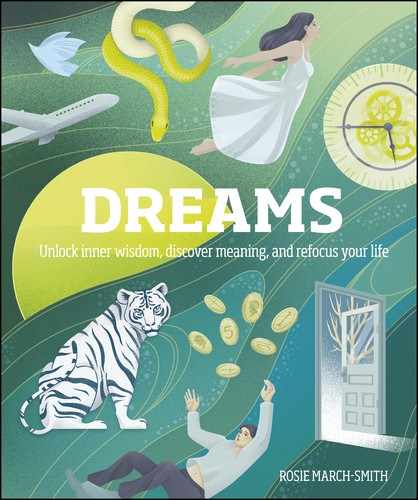
213
Sources
https://www.youtube.com/watch?v=IG-sDcQiqMI
August 28, 2010
Secondary sources
Stanley Krippner (Foreword), Robert J. Hoss, & Robert
P. Gonglo, editors, Dreams That Change Our Lives,
Chiron Publications, 2017
Sometimes recurring dreams, nightmares, or even
intriguingly similar storylines that keep cropping up
could indicate that nding help beyond this book
might be worth considering. Many people can feel
confused, distressed, or just plain curious without
realizing they are unconsciously struggling with
unresolved issues. Talking to a professional therapist
or counselor could prove useful in the search for
more clarity.
What is the dierence between therapy and
counseling? In the broadest terms, counselors work
with the material their clients bring in the here and
now and usually work on a shorter time frame than
their more extensively trained colleagues in
psychotherapy. By denition, the latter suggests
longer and deeper work in practice, as the therapist
explores hidden areas of trauma (however slight,
childhood disappointment can still leave scars),
bringing to the surface repressed, hurt feelings
about which the conscious mind is unaware.
It’s been said that counselors address the
conscious mind, while psychotherapists look to the
unconscious mind for their answers. This is not to
disparage the valuable work achieved in the briefer
encounters—more to explain what to expect if you
decide to go ahead and explore your material with a
trained psychotherapist.
However, when troubling or fascinating dreams
seem to encourage more insight than this book
can oer, it might be preferable to consult the
specialists whose training will have included some
understanding of the vast subject of the unconscious
mind. National directories will provide names and
qualications you will need (see page 211 for details
of professional bodies). Always inquire if dreams are
of special interest to a prospective practitioner.
If signing up for sessions in talk therapy does not
appeal, consider contacting an accredited
organization. It’s possible that someone local (for
example, a Jungian Analyst) might themselves be
interested in teaching dream interpretation. Find out
if that person would be prepared to run workshops
on the subject. Under experienced professional
guidance, you would discover the group’s input both
fascinating and revealing. This could surely be the
start of a psychological journey to treasure.
Eugene T. Gendlin, Focusing, Penguin Random
House Group, 2003
Bhante Henepola Gunaratana, Mindfulness In Plain
English, Wisdom Publications, Boston, 2002
Robert A. Johnson, Inner Work, HarperCollins
Publishers, 1989
COUNSELING
AND PSYCHOTHERAPY
US_212-213_Sources.indd 213 04/06/2019 11:17
..................Content has been hidden....................
You can't read the all page of ebook, please click here login for view all page.
